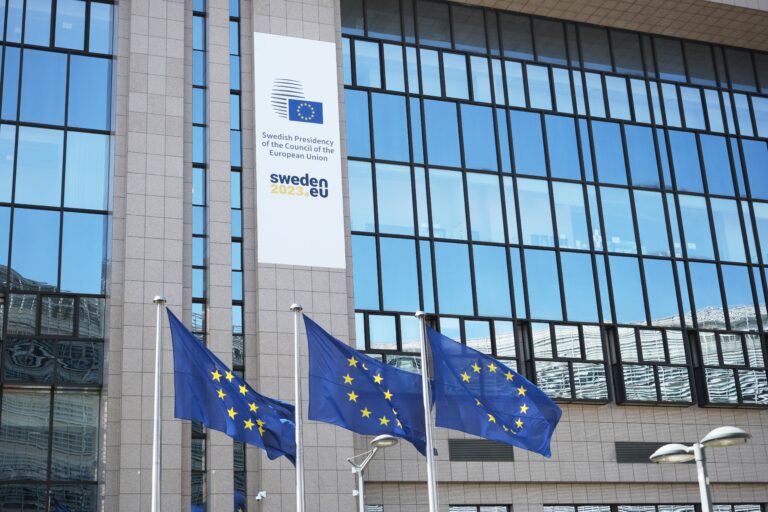EU Pact on Migration and Asylum: Parliament votes to enhance rights for ‘’economic’’ migrants, but progress on protection files is much more timid
The past week from 17th to 21th April, the European Parliament adopted positions on several important files under the EU Pact on Migration and Asylum. This marks the beginning of interinstitutional negotiations with Member States in the Council of the EU to find a compromise on the texts.
On so-called ‘’legal migration’’ initiatives, rights of migrant workers and long-term residents in the EU get a boost from MEPs
The past 17th and 20th April, the European Parliament adopted positions on two important files under the EU Pact on Migration and Asylum: the recast of the Single-Permit and EU Long-Term Resident (LTR) Directives. The EU LTR Directive aims at improving the rights of non-EU who are residing in the EU in the ‘’long-term’’ while the Single-Permit directive facilitates the admission for work by introducing a single application procedure combining work and residence.
SOLIDAR welcomes the progress on these files and greets with relief the adoption of the mandate on the recast Long-term Residents directive, against the far rights’ contestation of the Committee’s position that triggered a vote in plenary. We are happy to see elements in both texts that we have been calling for, along with other Civil Society Organisations:
A broader scope: it is a very welcome development that Temporary Protection beneficiaries and seasonal workers in the EU will be able to apply for both schemes ✔️
Easier application requirements:
- SOLIDAR especially praises the Parliament’s stance on reducing the period for eligibility to EU long-term resident status to three years for all non-EU nationals ✔️and that periods of residence in different Member States or under different status can count towards those three years ✔️
- The clause foreseeing that in countries with national long-term resident permits, the most favourable conditions between that national permit and the EU one shall apply may create differentiated treatment of (applicants) EU long-term residents across Member States ❌
Faster procedures and treatment of applications, with better access to information ✔️
Enhanced rights under these schemes:
- Allowing Single-permit holders to remain on the territory of Member States for a period of 9 months (against 3 in the initial proposal) in case of loss of employment is crucial to increase safeguards against labour exploitation, as it leaves people a more appropriate period of time to seek and find new employment ✔️
- Labour market checks will be prohibited as a general rule in case of change of employer✔️unless the holder changes sectors or the Member State has a practice of carrying a check for single-permit applications ❌
- Looking at long-term residence, family and intra-EU mobility rights have been deepened: EU LTR would be enabled to freely move to another Member State to work or study without labour market checks or integration requirements✔️; dependent children of an EU LTR would acquire the status automatically, while their family members would be allowed to move within the EU with them ✔️.
Far rights MEPs’ rejection of enhancing the rights of long-term residents in the European Union is likely a foretaste of what is to come in interinstitutional negotiations. SOLIDAR calls on the Parliament not to give up on important advances to ensure equal treatment, workers’ protection, and rights to intra-EU mobility for beneficiaries and their family.
These overall very promising developments come in stark contrast with recent advances on the files related to protection.
On the so-called ‘’Asylum and Migration package’’, solidarity makes baby steps but security-driven measures continue to threaten fundamental rights
On 20th April, MEPs voted negotiating mandates for another 3 files, all regulations focused on Asylum and protection: the Asylum and migration management regulation, the Screening regulation and the Crisis and force majeure regulation.
SOLIDAR regrets the maintaining of Dublin principles and the flexibility for Member States in assuming their share of solidarity for relocating asylum-seekers (either relocation or capacity-building measures), failures in the attempt to ensure effective solidarity ❌. A positive point is the announced priority on relocation (and in particular of unaccompanied minors) within the ‘’solidarity pool’’ ✔️. This is embodied for instance by the appointment of an EU Relocation coordinator. If the relocation needs are not met from Member States pledges in the solidarity pool, the Commission will be able to propose further relocation for the uncovered needs based on the population and the GDP of each Member State ✔️.
There are also fundamental rights concerns with the normalization of detention at the borders ❌, to some extent counterweighted by a proposition to expand the scope of CSO’s border monitoring ✔️. In terms of reaction in times of crisis, it is welcome that positive elements from the European reaction to the mass arrivals of people fleeing the war in Ukraine were taken onboard. MEPs have voted to grant the Commission an important leadership role in times of crises ✔️, prima facie recognition of protection needs is introduced ✔️ and the concept of force majeure withdrawn ✔️ Nonetheless, we regret that the possibility to derogate to normal asylum procedures is validated ❌. To finish on a positive note, we applaud the Parliament’s reject of the ‘illegality’ language to refer to people irregularly staying on EU territory instead ✔️.
SOLIDAR calls for the Parliament to ensure the final text prioritizes the fundamental rights of all people entering the EU and especially vulnerable groups and individuals; and to ensure European solidarity with a fair sharing of responsibility for protection applications.
Featured imagine credits: JMundy via Shutterstock.com



